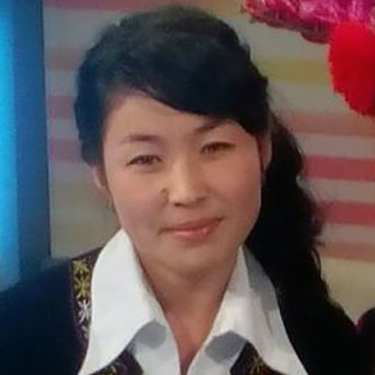Pressure on Karakalpakstan journalist wrongly accused of spreading false information

Reporters Without Borders (RSF) condemns the way the authorities of Karakalpakstan, an autonomous republic in western Uzbekistan, intimidated a journalist, summoning her in the middle of the night for allegedly reporting the death of Senator Musa Erniyazov, the chairman of Karakalpakstan’s parliament, six days before his reported death last Friday.
The editor of the online news media Kar24.uz Kumar Begniyazov was compelled to go to the prosecutor’s office during the night of 25 to 26 July, with her child, to explain her “error.” Although other journalists had already reported Erniyazov’s death, Begniyazov had not. In fact, after checking with the parliament’s press office, she had issued a report on her Telegram channel denying the report that he had died.
Although Begniyazov has received no further explanation about this nocturnal summons, she assumes that officials confused her media outlet with another one with a similar name, which had indeed shared a report that Erniyazov, who was also deputy chairman of the Uzbek supreme assembly, had died after contracting Covid-19.
Two other journalists were also brought to the prosecutor’s office in the middle of the night for reporting Erniyazov’s death without checking with the authorities first. One was Lola Kallikhanova, the editor of Makan.uz, who was collected by no fewer than six police cars. One of the plainclothes policemen who came for her snatched her phone from her hand and none of them showed any ID. During three hours of questioning, she argued that Karakalpakstan’s journalists did not trust official sources and that access to official information had become much harder since the start of the coronavirus epidemic.
At the start of July, the parliament’s press office denied that Erniyazov had caught Covid-19, only to confirm it 13 days later. Kallikhanova, who has written many stories about coronavirus deaths in Karakalpakstan, suspects that the sudden summons to the prosecutor’s office was just a pretext to gain access to her mobile phone and sources.
The other journalist was Iskandar Yusupov, who had also shared the Repost.uz report about Erniyazov’s death on his media outlet Kruz.uz’s Telegram channel. He said that a car came at around midnight to take him to the prosecutor’s office, where he was held until 3:30 a.m., and that his mobile phone and laptop were illegally confiscated.
“These disproportionate interrogation methods leave no doubt that these authorities were bent on intimidating the journalists,” said Jeanne Cavelier, the head of RSF’s Eastern Europe and Central Asia desk.
“This case has highlighted the difficulty of accessing information in Karakalpakstan, and this hampers the work of journalists, especially during the Covid-19 epidemic. The lack of official transparency about the situation encourages the spread of rumours. We firmly condemn the way these interrogations were conducted and we call for these abuses to be punished. We also call on the authorities in this autonomous republic to stop hounding journalists and to improve communication with them.”
On the morning after these interrogations, the prosecutor’s office announced that it was opening a criminal investigation into the dissemination of false news media reports about the spread of life-threatening infections. This is punishable by a fine of 4,000 to 8,000 euros and up to three years in prison following the adoption of the new criminal code article 244-5, whose vague wording poses a threat to press freedom.
The outcome of this investigation is now uncertain, after the Uzbek government news agency Uza.uz finally reported that Erniyazov died last Friday.
The Uzbek deputy prosecutor-general and the Uzbek Agency for News and Mass Communication both condemned the behaviour of the Karakalpakstan prosecutor’s office, while at the same time stressing the importance for media outlets to verify the information they report.
Karakalpakstan is Uzbekistan’s only autonomous region. For fear of separatist movements and insurrections, the Uzbek government restricts access to information about the deaths of senior Karakalpakstan officials who are loyal to Tashkent and who keep the region under tight control.
Uzbekistan is ranked 156th out of 180 countries in RSF's 2020 World Press Freedom Index.



